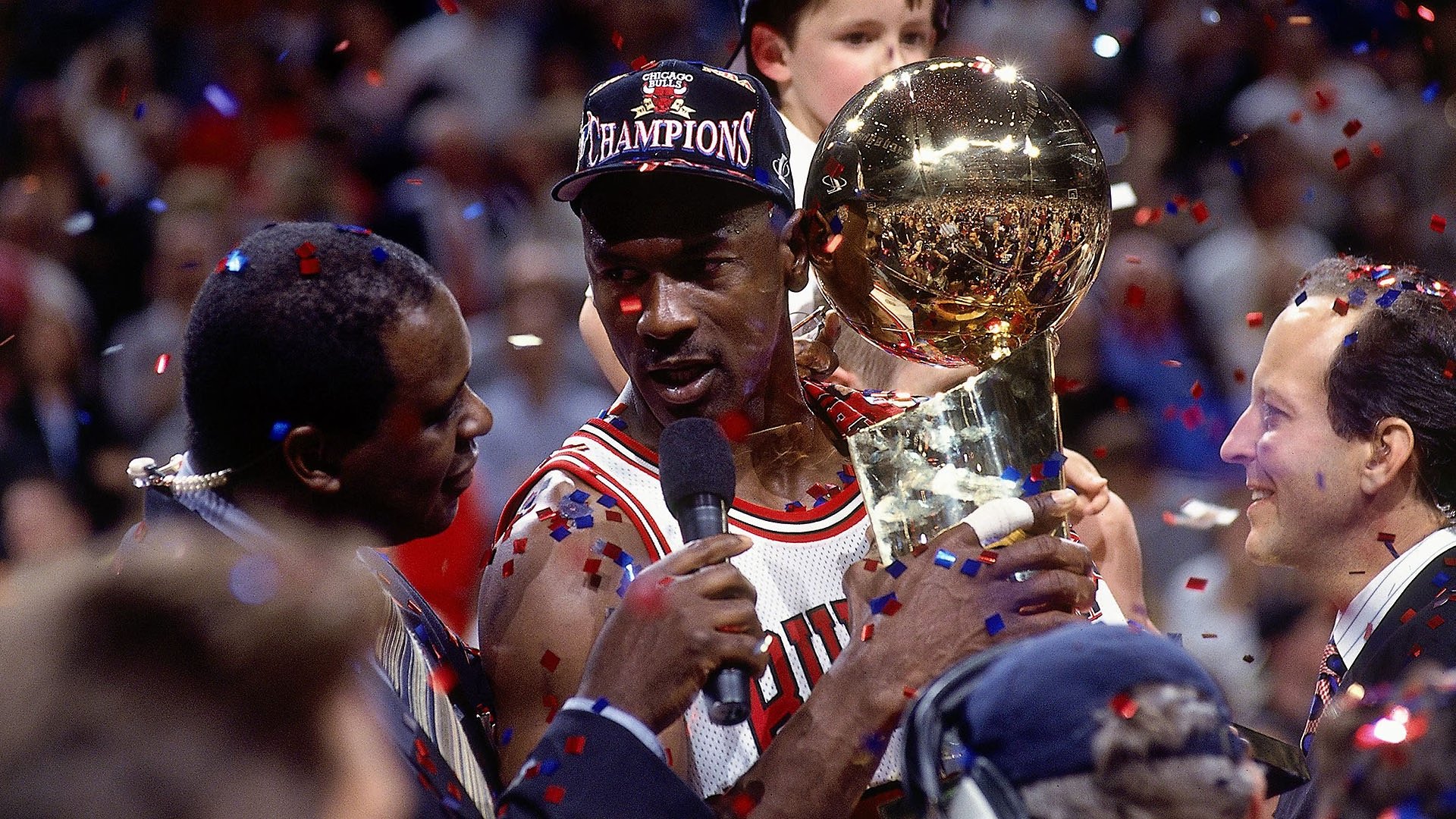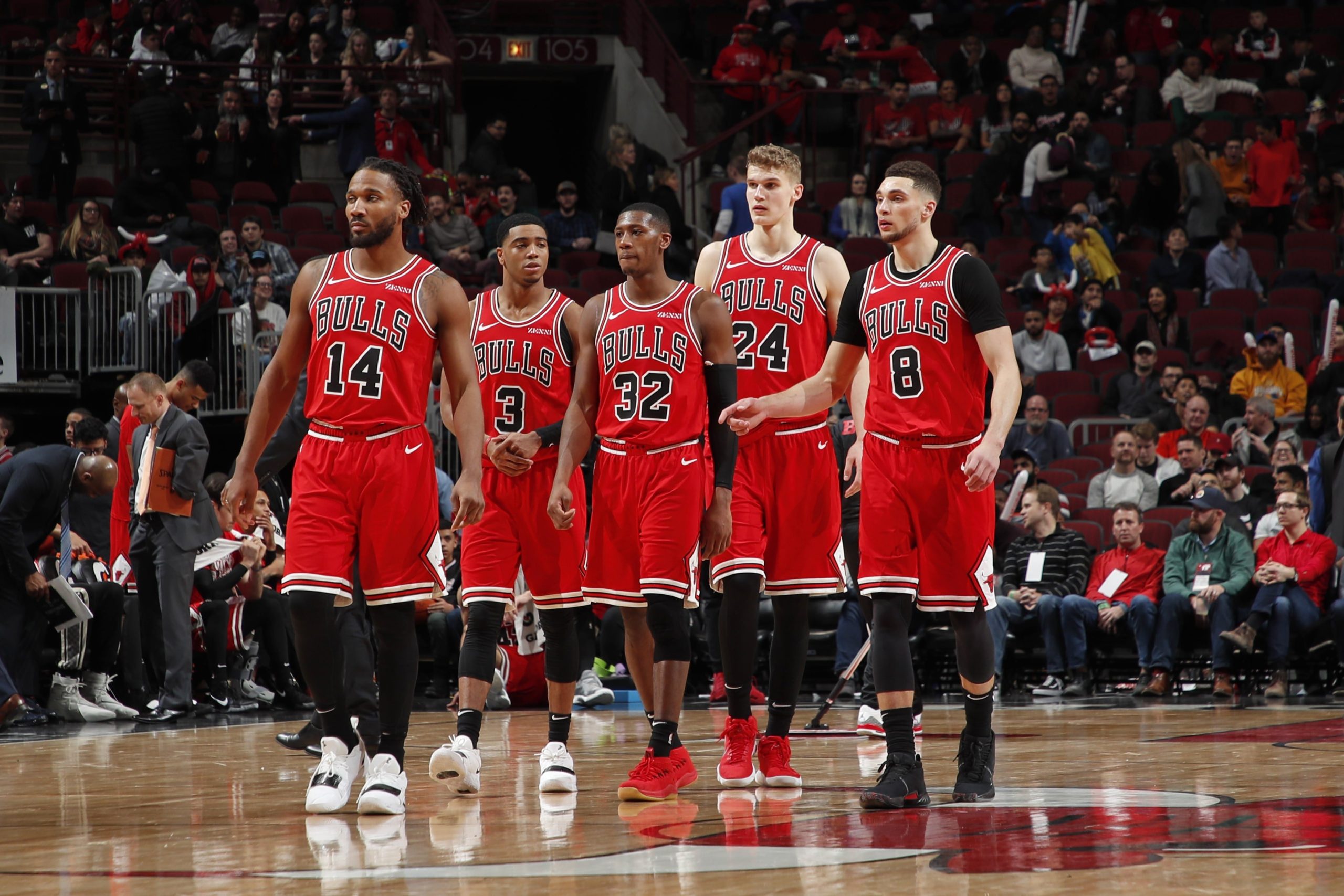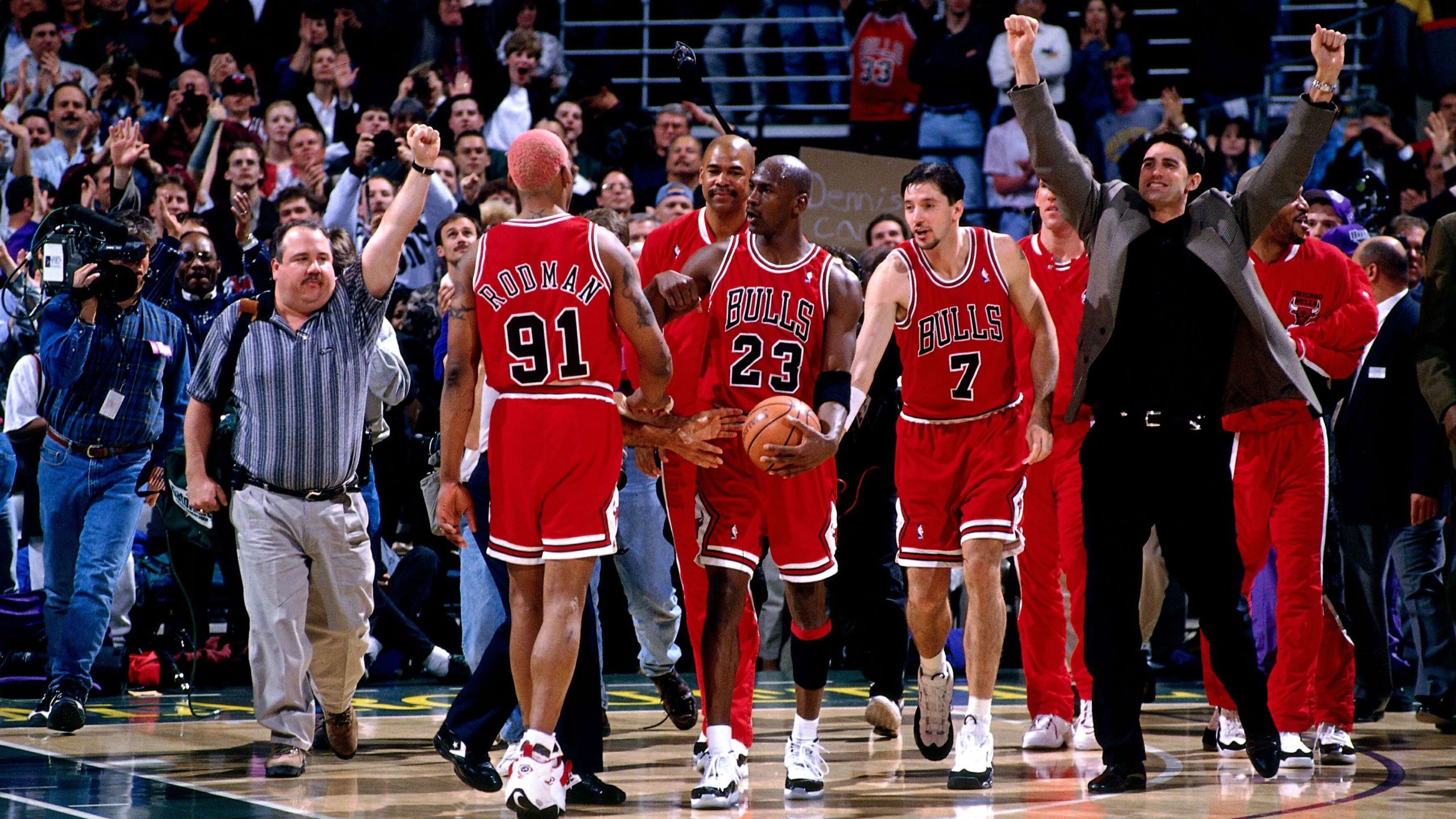On June 13, 1997, the Chicago Bulls cemented their legacy as one of the greatest dynasties in NBA history by clinching their fifth NBA championship in seven years. This victory not only underscored the dominance of Michael Jordan and his team but also marked a significant moment in sports history, showcasing the culmination of talent, strategy, and sheer willpower.
Road to the Championship
The 1996-1997 NBA season was one of high expectations for the Bulls. After securing a record-breaking 72-10 season the previous year and winning the championship, the pressure was on to maintain their top-tier performance. Under the leadership of coach Phil Jackson, known for his innovative triangle offense, the Bulls set out to defend their title.

Regular Season Dominance
The Bulls, led by Michael Jordan, Scottie Pippen, and the newly acquired Dennis Rodman, finished the regular season with an impressive 69-13 record. Jordan, as the league’s MVP, was at the peak of his powers, showcasing unparalleled scoring ability and defensive prowess. Pippen’s all-around game and Rodman’s rebounding and defensive skills provided the perfect support.
Playoff Performance
The Bulls’ playoff journey began with a first-round sweep against the Washington Bullets. In the Conference Semifinals, they faced a tougher challenge from the Atlanta Hawks but prevailed in five games. The Eastern Conference Finals saw the Bulls battle the Miami Heat, where they triumphed in five games to secure their spot in the NBA Finals.
Facing the Chicago Bulls in the NBA Finals were the Utah Jazz, led by the formidable duo of Karl Malone and John Stockton. Malone, the league’s MVP, and Stockton, one of the greatest point guards in history, posed a significant threat to the Bulls’ quest for another championship.
Setting the Tone
The Finals kicked off on June 1, 1997, in Chicago. The Bulls set the tone early with a 84-82 victory, thanks to a last-second jumper by Michael Jordan. This game highlighted Jordan’s clutch performance, a recurring theme throughout his career.
Building Momentum
In Game 2, the Bulls continued their dominance with a 97-85 win. Jordan once again led the team with 38 points, while Pippen and Rodman provided critical support on both ends of the floor.
Strike Back
As the series moved to Utah, the Jazz found their rhythm and handed the Bulls a 104-93 defeat. Karl Malone’s 37 points and 10 rebounds were instrumental in the Jazz’s resurgence.
Turning Point
Game 4 was a pivotal moment in the series. In a tightly contested game, the Bulls emerged victorious with a 78-73 win, regaining the home-court advantage. This low-scoring battle showcased the defensive tenacity of both teams.
Flu Game
One of the most memorable games in NBA history, Game 5 is often referred to as “The Flu Game.” Despite being visibly ill, Michael Jordan delivered an astonishing performance, scoring 38 points and leading the Bulls to a 90-88 victory. His will to win, despite his physical condition, became a testament to his legendary status.
Clinching the Title
The series returned to Chicago for Game 6 on June 13, 1997. The Bulls seized the opportunity to close out the series with a 90-86 win. Jordan scored 39 points, securing his fifth NBA Finals MVP award. The Bulls’ defense, anchored by Rodman and Pippen, played a crucial role in stifling the Jazz’s offense.
Legacy of the 1997 Bulls
The 1997 NBA championship solidified the Bulls’ dynasty and Michael Jordan’s status as the greatest basketball player of all time. The team’s success was a result of the perfect blend of talent, strategy, and chemistry.
Phil Jackson’s Mastery
Phil Jackson’s coaching philosophy, particularly the implementation of the triangle offense, was instrumental in the Bulls’ success. His ability to manage egos and keep the team focused on their collective goal was a key factor in their championship run.
Michael Jordan’s Brilliance
Michael Jordan’s performance throughout the season and especially in the Finals was nothing short of extraordinary. His scoring ability, defensive prowess, and unmatched competitive spirit defined the Bulls’ championship run. The “Flu Game” in particular remains one of the most iconic moments in sports history.

Supporting Cast Contributions
While Jordan was the centerpiece, the contributions of Scottie Pippen, Dennis Rodman, and the rest of the supporting cast were equally important. Pippen’s versatility, Rodman’s rebounding and defensive skills, and key plays from role players like Steve Kerr and Toni Kukoc provided the necessary support for the Bulls to thrive.
Impact on the NBA
The Chicago Bulls’ dominance during the 1990s had a profound impact on the NBA. Their success popularized the league globally, with Michael Jordan becoming an international icon. The Bulls’ championship runs also set a new standard for excellence and team dynamics in professional basketball.
Global Popularity
Michael Jordan and the Chicago Bulls transcended basketball, becoming cultural icons. Jordan’s endorsement deals, particularly with Nike, and the Bulls’ worldwide fan base contributed to the global growth of the NBA.
Setting a Standard
The Bulls’ success in the 1990s set a benchmark for future teams. Their emphasis on defense, team play, and mental toughness became a blueprint for building championship contenders. The legacy of the Bulls’ dynasty continues to influence NBA teams today.
Conclusion
The Chicago Bulls’ fifth NBA championship in 1997 is a landmark event in sports history. The combination of Michael Jordan’s brilliance, Phil Jackson’s strategic genius, and the contributions of a talented supporting cast resulted in a remarkable achievement that continues to be celebrated. The legacy of the 1997 Bulls endures as a symbol of excellence, resilience, and the pursuit of greatness.




